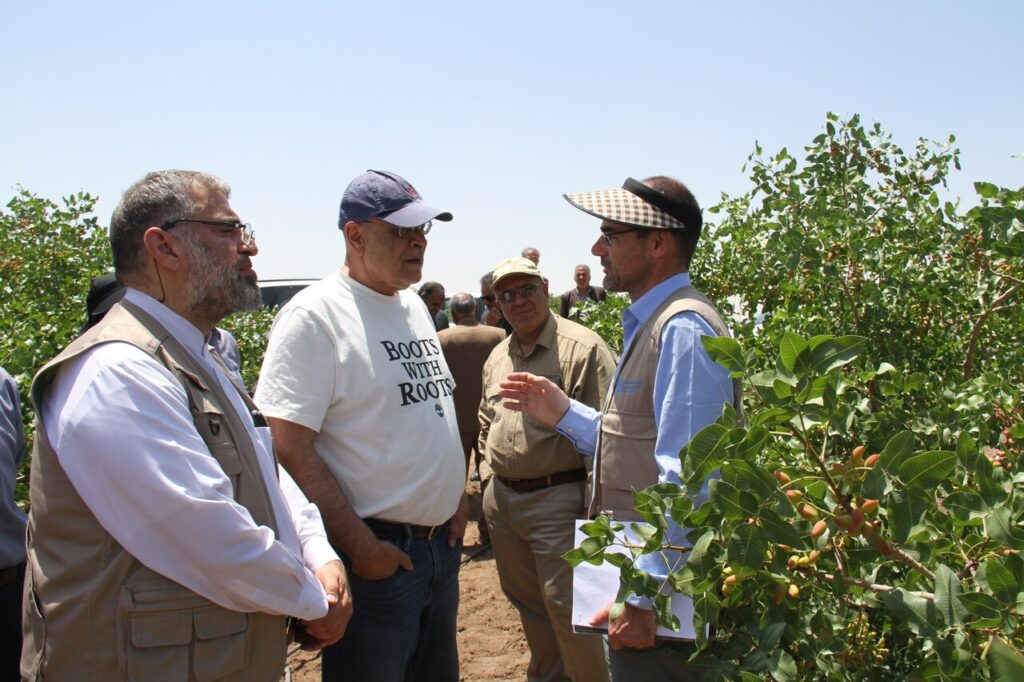As part of its ongoing efforts to strengthen Iranian pistachio export standards, the United Nations Food and Agriculture Organization (FAO) has sent a technical delegation to the Karman province to evaluate and improve the sampling and testing procedures to detect contaminants in pistachio, one of Iran’s most valuable export products.
The three-day mission will be carried out under the FAO Joint Technical Cooperation Project and the Ministry of Agriculture Jahad, accompanied by “improving the production and export of pistachios through the establishment of integrated product management” and Benoit Glaud, FAO international consultant for Laboratory development and improvement.
The mission is intended to assess the sampling and analysis methods used to control mycotoxin (aflatoxin) levels in Pistachios in line with EU regulations 2023/2782.
The FAO delegation visited the Iranian Food and Drug Administration (IFDA) laboratory under Pilot Orchard (IPRI) including the private sector facilities including the pistachio processing terminal, Karman and Raf Sandjan, and the Iranian Pistachio Institute (IPRI).
During these visits, the team observed and evaluated pistachio sampling procedures, test protocols, and quality control systems, both domestic and international markets.
In addition to the evaluation, two training workshops were offered by the FAO. One was by Benoit Glaud for laboratory staff and traders, focusing on the best international practices in sampling, aflatoxin detection, testing results quality control, and regulatory compliance.

Another event, co-organized with the Pistachio Institute, was held for pistachio growers and farmers, farmers, experts from Karman, Rafsanjan, Naf Lafsanjan and Siljan.
The focus was on excellent agricultural practices (GAP) covering advanced irrigation techniques, soil and nutritional management, integrated pest management strategies, and improved horticultural practices. The aim was to enhance the practical skills and technical knowledge of stakeholders to support the production of high quality and safe pistachios.
Through field visits and consultations, experts evaluated current sampling and analysis methods used at Iran’s FDA Institute, along with the Ministry of Agriculture Jahad, identified potential gaps and recommended continuous improvements to keep up with international standards and practices.
The delegation also focused on strengthening regulatory coordination, strengthening laboratory capabilities for mycotoxin detection, and developing technical action plans.

The IFDA Institute has the technical capabilities and expertise to provide reliable results for aflatoxins
“At every stage of the production, processing, packaging and testing of pistachios before export, I met people with a very high level of expertise and an understanding of the key points to ensure the quality of pistachios for export. The IFDA Institute expresses its technical capabilities and expertise to provide literal results for aflatoxin and support the export sector.
International food safety regulations are constantly evolving, and it is important to stay up to date with the latest quality control procedures to ensure proper results. This FAO project supports Iran’s Islamic Republic in this respect,” Glaud said.
The FAO has sought to engage both public and private stakeholders, relocate top global practices, build national capacity and support sustainable improvements across the pistachio value chain.
The Pistachio Project, launched in 2023, aims to promote sustainable and integrated pistachio supply chain management, increase productivity, promote support compliance with food safety regulations, and enhance market access.
By addressing key quality and safety challenges, the project will contribute to economic resilience, food and nutrition security and Iran’s competitiveness in global markets.
MNA/

